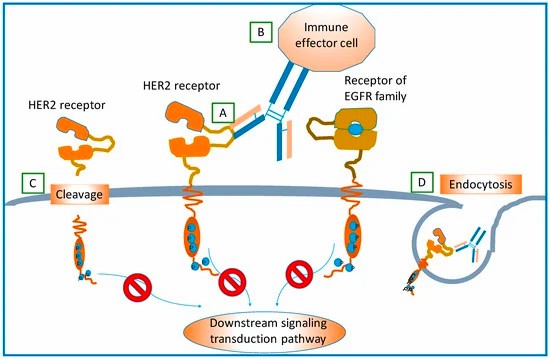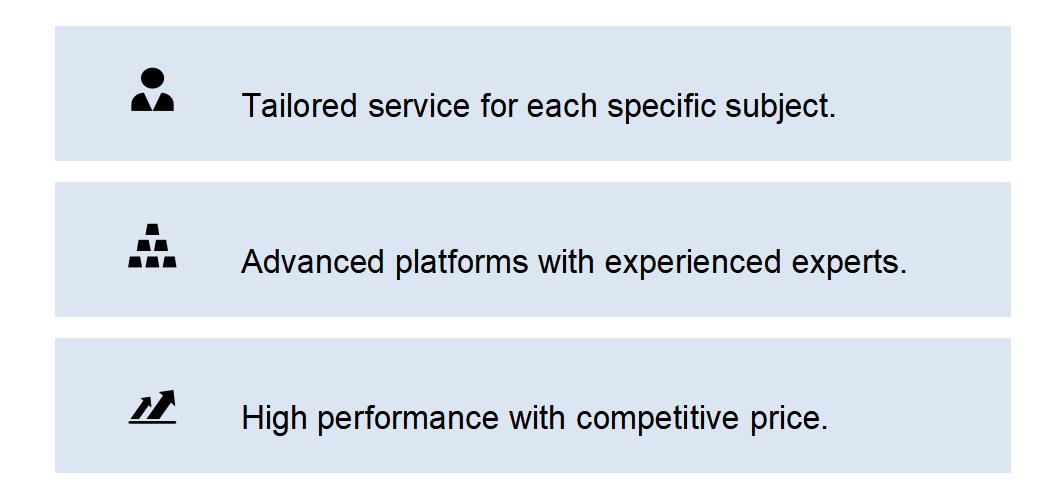B Cell-based Inhibition by Antigen Assay
The Valuable Inhibition Assay for Epitope Identification
Even though many tumor-associated antigens have been used for diagnosis or target treatment in preclinical experiments, our knowledge about the antigenic epitope of protein antigen related to antibody binding is rare.
As we know, one of the most important mechanisms of action of antibodies for therapies is the antibody-based inhibition function, such as inhibiting key signaling transduction for tumor cell growth. In prostate cancer, antibodies are developed to block the prostate-specific antigen (PSA) binding to a1-antichymotrypsin (ACT). Immune checkpoint antibodies are developed to inhibit the interaction of PD-1 on T cells with PD-L1 on tumor cells. The binding interaction between antibody and epitope peptide inhibits the binding of antigens of homologous origin to the same antibody. This antigen inhibition assay has become a classical method for identifying antigenic epitopes within antigens.
 Fig.1 Potential action mechanisms of monoclonal antibody targeting HER2 receptor.1
Fig.1 Potential action mechanisms of monoclonal antibody targeting HER2 receptor.1
Antibody-mediated Antigen Inhibition Assay Service at Creative Biolabs
Creative Biolabs offers custom characterization services of cancer-associated epitopes by synthesizing overlapping peptide libraries derived from an antigen and screening them against antigen-specific antibodies.
Workflow

Describe Our Services by Step
-
Antigen Synthesis
-
We provide high-quality and purified protein antigens using chromatography.
-
Antigen purity and concentration are determined.
Types:
-
Polyclonal antibodies
-
Monoclonal antibodies
-
Serum mixture
Source of antigen reactive antibodies:
-
Infected patients
-
Immunized animals, including: mice, rat, chimpanzee, rabbit, goat, and so on.
-
Linear Peptides Library Generation
The antigen peptide contains small amino acid residues overlapped with the adjacent peptides.
Specific biological labels are modified to the terminal of the peptide for easy immobilization to the support plate.
-
Dominant Epitope Screening
-
Each peptide is coated on a single well and inoculated with the antibody.
-
The specific epitope showing a strong binding response to the antibody is selected using ELISA.
-
The coating conditions regarding concentrations and buffer are optimized before large-scale screening to obtain the best protein spot performance.
-
Antigen Inhibition Assay
-
Various formats of assays for measuring the inhibition of enzymatic activity or the antigen binding to antibodies are available or can be designed for your specific research objectives.
-
In our classic inhibition assay, the diluted antibody is pre-inoculated with a wide range of peptides with different concentrations for hours, and then a whole-length antigen is added. The remaining unbound antigens are detected by another antigen-specific antibody and are expressed as the inhibition rate.
Highlights

For different backgrounds of cancer antigens and different objectives of epitope analysis demands, our experts can design special assays for each client's research. Creative Biolabs is devoted to offering the most reliable and efficient epitope analysis service to help clients develop desired antibodies faster. Please contact us for more detailed information.
Reference
-
Lv, Q.; et al. Molecular Mechanisms and Translational Therapies for Human Epidermal Receptor 2 Positive Breast Cancer. International Journal of Molecular Sciences. 2016, 17(12): 2095.
For Research Use Only | Not For Clinical Use


 Fig.1 Potential action mechanisms of monoclonal antibody targeting HER2 receptor.1
Fig.1 Potential action mechanisms of monoclonal antibody targeting HER2 receptor.1


 Download our brochure
Download our brochure

